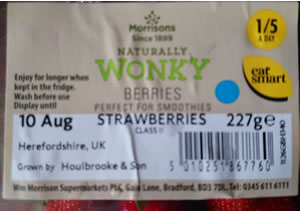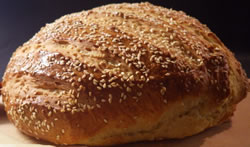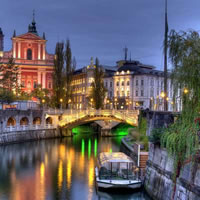
Yesterday I bought some ‘naturally wonky strawberries‘ at the supermarket. They were cheaper than the non-wonky strawberries, and do not meet the same aesthetic standards, but taste just as good. Normally such imperfect fruit would be thrown away, so selling them reduces food waste. Also I like the word wonky, and thought I’d find out more about where it comes from.
Wonky means lopsided, misaligned, off-centre; feeble, shaky, rickety; generally incorrect. It can also refer to “A subgenre of electronic music employing unstable rhythms, complex time signatures, and mid-range synths”.
It comes from the Middle English wankel (unstable, shaky), from the Old English wancol (unstable), from the Proto-Germanic *wankulaz (swaying, shaky, unstable), from the Proto-Germanic *wankōną (to sway, be unsteady), from Proto-Indo-European *wa(n)k-, *wek-, *wag-, *weg- (to swing, be unsteady, slant, be crooked) [source].
Wonky is also the nickname of the main character in Jasper Fforde’s new novel, Early Riser, which I just finished reading, and really enjoyed. It includes made-up words and word play, so is linguistically interesting, and I’d thoroughly recommend it.


